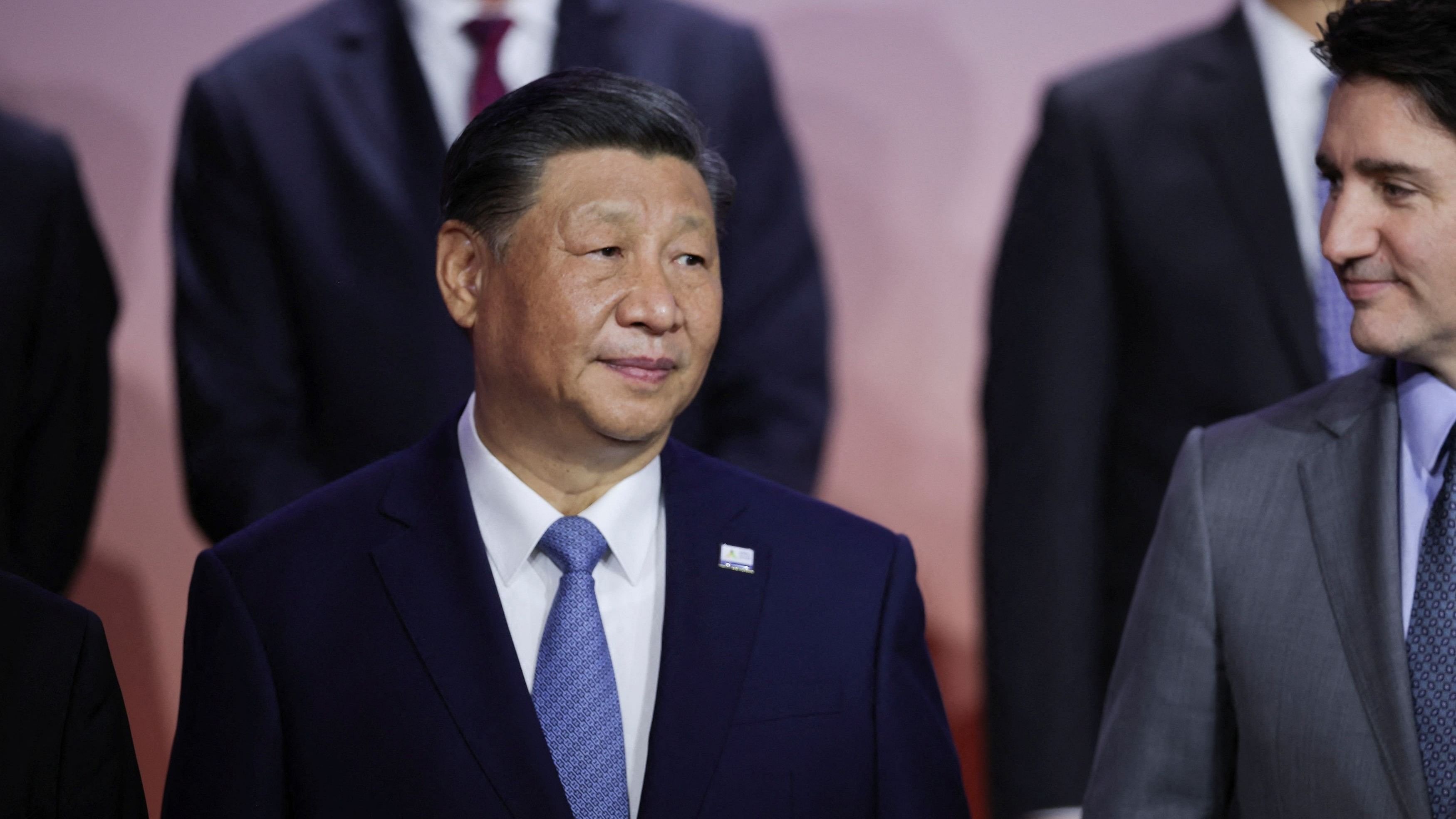
Chinese President Xi Jinping, next to Canada's Prime Minister Justin Trudeau.
Credit: Reuters File Photo
Montreal: A top-secret intelligence report drafted a week before Canada’s 2021 general election warned about ongoing attempts by the Chinese government to meddle in specific races, saying that Beijing had “identified Canadian politicians considered” to be opponents of China.
Those politicians had become the targets of a shadowy media campaign, with suspected links to the Chinese government, that spread “false narratives” about them and encouraged Canadians to vote against them.
The intelligence about possible interference in Canada’s last general election was included in documents released on Wednesday at a public hearing before a commission investigating foreign interference. Their release followed Canadian news reports over the past year outlining the Chinese government’s actions and raised concerns about the vulnerability of Canada’s democratic institutions.
Canadian politicians believed to have been targeted by Beijing also testified at the hearing on Wednesday, saying that they had drawn the ire of the Chinese government by criticizing its record on human rights, among other issues.
Kenny Chiu, a former member of Parliament from the Vancouver area whose 2021 loss has been at the heart of investigations into Chinese election interference, said he was dismayed to learn Wednesday that intelligence officials had been aware of China’s actions at the time of the election but had not told him.
“It’s almost like I was drowning and they were watching,” said Chiu, a Conservative Party member who was a fierce critic of Beijing’s security crackdown in Hong Kong. He was also the chief proponent of a bill to create a registry of foreign agents in Canada to try to curb foreign interference.
The public hearings in Ottawa are part of federal inquiry into interference in Canada’s political system by China and other nations, especially the past two general elections. Prime Minister Justin Trudeau agreed to call the inquiry in September after facing increasing criticism in the news media and by opposition politicians.
The Chinese Embassy in Canada has denied interfering in the elections of Canada or any other country.
The Chinese government is believed to have backed candidates considered friendly to Beijing, most of whom belonged to Trudeau’s Liberal Party, according to the Canadian news media.
By contrast, the Chinese government is believed to have opposed candidates of the Conservative Party, which took a harder line on human rights and a host of other issues related to China. The intelligence report drafted a week before the 2021 election said that the media campaign aimed “to discourage voters from voting for the Conservative Party.”
Since President Xi Jinping’s rise to power, China has stepped up efforts to sway elections in Canada and other countries, according to intelligence officials, academics and members of the diaspora.
The Chinese government has typically expanded its influence through diaspora community organizations, Chinese-language news media and social media worldwide. Community organizations have become increasingly fearful of offending the Chinese government, according to Chinese-Canadian activists in Vancouver and Toronto.
Jenny Kwan— a veteran member of Parliament from Vancouver who was told by Canadian intelligence that she has been a target of Chinese interference— testified Wednesday that once-friendly Chinese-Canadian community organizations in Vancouver had distanced themselves from her since 2019.
“In the beginning, it was a little more subtle, and then it became more and more obvious,” said Kwan, a member of the New Democratic Party who has been a vocal critic of China’s human rights record.
An intelligence report released Wednesday said that in Vancouver, in the 2019 election, proxy agents for the Chinese government “coordinated the exclusion of particular political candidates, perceived as ‘anti-China,’ from attending local community events related to the election.”
In the 2021 election, Chiu had been leading in polls, but he lost his race after facing what he called a “tsunami” of untraceable attacks on the Chinese-owned networking app, WeChat. The attacks portrayed Chiu, who is Chinese Canadian, as a traitor to his community and his foreign registry bill as a racist assault on all people of Chinese descent.
The attacks, coming toward the end of the campaign in 2021, had an immediate impact, Chiu testified. When he went knocking on doors, he found that onetime supporters had turned on him. He said he remembered the face of one woman who, on seeing him, showed “a deep sense of hurt.”
“She says she’s not going to vote for us because we hate China, because we hate them,” Chiu said.
Testifying on Wednesday, Erin O’Toole, the leader of the Conservatives in 2021, said he believed that the Conservatives had lost five to nine districts because of foreign interference, including Chiu’s.
“Certainly nowhere enough to change the results of the election,” O’Toole said, referring to the overall outcome. “But for people in those seats, if they were undergoing intimidation or suppression measures, their democratic rights were being trampled upon by foreign actors.”
In the 2021 election, the Conservatives won the popular vote, but Trudeau’s party won the most seats and stayed in office as a minority government.